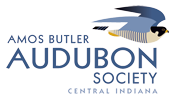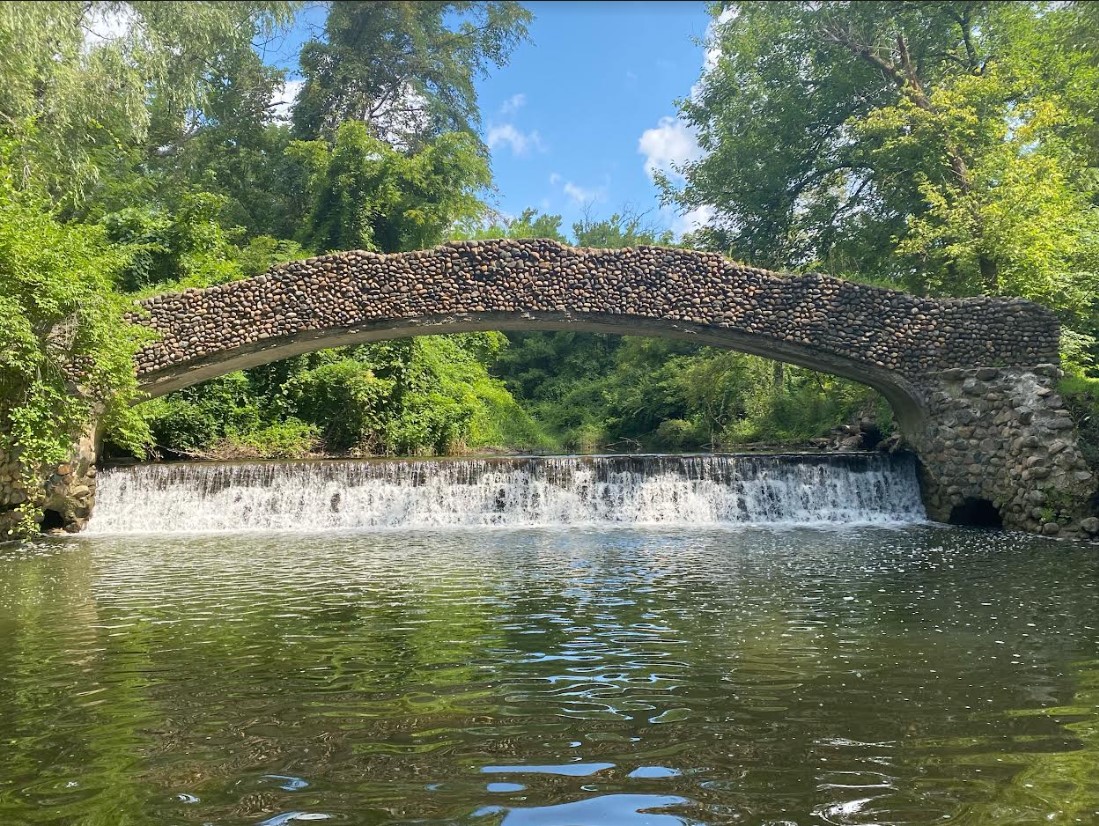The Marian University Nina Mason Pulliam Ecolab
By Dr. David Benson
It’s a hidden gem in the middle of the city: an interesting combination of productive birding areas, historic and designed landscape, and outdoor ecological research laboratory. And, thanks to an initial grant in 2000 from ABAS, the Marian University EcoLab is a place where environmental citizenship values are nurtured in K-12 kids, college students, and the general public every day. Because ABAS believed in that mission enough to grant it the first major infusion of funding, the Nina Mason Pulliam Charitable Trust followed suit and this gem on the Marian University Indianapolis campus is now known as the Marian University Nina Mason Pulliam EcoLab (EcoLab).
Marian University provides opportunities for ABAS members, students, local K-12 students, and the local community to become involved in environmental restoration and stewardship in the EcoLab, a 75-acre wetland and lowland forest on the north end of the downtown campus. This location was originally part of “Riverdale,” the James A. Allison estate, and was designed in 1911 using all native Indiana plants by master landscape architect Jens Jensen. Included are a series of spring-fed lakes, multiple wetland types, river corridor, forest, interesting stonework features, big stone bridges, designed waterfalls, an outdoor classroom, and so much more.
Each year EcoLab staff, friends, and former students form Team EcoLab and participate in the ABAS Birdathon. Last year we found 83 species in the EcoLab and adjacent property. It’s a nice birding site. In the 2021 Birdathon, we had Connecticut Warbler and Golden-winged Warbler, among other cool species.
ABAS has supported the EcoLab from its inception, with members providing volunteer assistance for stewardship activities, conducting bird surveys, and helping to publicize special events. In 2002, ABAS officially “adopted” the EcoLab as a special project. During the past several years, Marian has led 8:00 am Wednesday bird walks in spring and fall that are advertised through ABAS and to the public in order to raise awareness so that more people can enjoy the birds of Indiana.
The ABAS Birdathon has also provided funding for plant materials to improve bird habitat within the EcoLab. These plants are good for the birds, but more importantly they promote active stewardship. The plants are installed by university and K-12 students and other volunteers. By getting their hands a bit dirty, bird lovers, students of all ages, and the larger community will better understand the need for increased involvement in the protection and restoration of habitats critical to the birds of Central Indiana.
This year, the EcoLab had 875 participants in 27 different groups on field trips with many of those taking part in the installation of Birdathon plant materials. Some of the groups that participated this year included Ben Davis, Riverside, Zionsville, and Herron high schools, several elementary and Junior high classes, and the Girls STEM Institute. GSI is a summer camp designed to bolster young BIPOC (black, indigenous, and people of color) girls’ interest in various science fields and encourage them to consider STEM for a future career. The EcoLab also continues to involve a large number of Marian University students in restoration and other projects including all sections of the Environmental Science general education course and the freshman biology course, Ecology and Evolution. EcoLab interns are students at Marian University who work in the EcoLab planting natives and removing invasive species and gaining other environmental skills. Marian University thinks of the EcoLab as one of their laboratories, one that is used for educating students and visitors in environmental science and ecology.
The EcoLab has a colony of beavers on the main Jens Jensen pond where it’s easy for visitors to see their winter lodge. These beavers are constantly working to build and maintain the wetlands in the EcoLab. They build dams and dredge canal transportation networks to gain safer access to the “Beaver Buffet” within the wetland. One of the areas with canals maintained by the beaver had an intense infestation of Reed Canary Grass until last year when EcoLab staff worked to eradicate it. This area then received some of the Birdathon-funded plants. EcoLab staff will continue to monitor this site and work on any Reed Canary Grass resprouts as soon as they begin to emerge in April to further limit seed spread through the beaver canal system.
Another planting project sponsored in part by the Birdathon that will take place in the EcoLab this year will be along the north shore of the main Jens Jensen pond. Here, erosion and muskrats have teamed up to remove the vegetation that keeps the trail from washing away. This spring, topsoil will be installed, erosion control fabric will be laid down and the area will be seeded and plugged with native Indiana shoreline species such as sedges, bulrushes, and wildflowers. This project will provide habitat while allowing student and volunteer participation in conservation, including several April and May field trips.
One exciting new technique the EcoLab started working with this year was the use of a drone to help quantify invasive plants and improve invasive management on the property. Several overflights have been flown and data are being analyzed for comparison with the coming year. Another research project ongoing in the EcoLab is on the Eastern Box Turtle. The project is examining how box turtles are using habitat within the big city, what areas they are choosing for hibernation, and how their home ranges differ from turtles living in more wild locations in Indiana. It’s easy to get K-12 and other groups involved in this project by teaching them how to use radio telemetry to find the turtles. Kids LOVE the hunt and eventual thrill of discovering a turtle. It’s a great experience for all involved and also helps provide a data point when a turtle is found. Kids can see the importance of different aspects of their habitat, such as leaf litter, woody debris, native plant coverage, and loose soil.
Each year the Marian University Nina Mason Pulliam EcoLab holds a native plant sale. This year, plants go on-sale online April 1 and plant pickup will be in early May. For more information on the plant sale, weekly bird walks, and other public programs, or for scheduling an EcoLab field trip for your class or scout group, see http://marian.edu/ecolab. The EcoLab is open dawn to dusk. Come birding!

